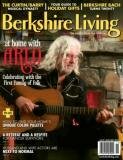
MUSIC REVIEW: Tanglewood on Parade
Classical Music
Route 183
Lenox, Mass.
Tanglewood on Parade Gala Concert
Boston Symphony Orchestra, Boston Pops Orchestra, Tanglewood Music Center Orchestra, Yo-Yo Ma, James Taylor, and conductors John Williams, Keith Lockhart, Stefan Asbury, and Julian Kuerti
August 3, 2010
Reviewed by Lesley Ann Beck
(LENOX, Mass.) Tanglewood on Parade is a bit like that joke about Berkshires weather; if you’re not completely enjoying what you’re hearing, wait a few minutes and it’ll change. What was marvelous about Tuesday evening’s concert was that every selection the orchestras played was terrific, and that although it included seven compositions by the same composer—John Williams—it was a varied and entertaining evening, full of surprises.
John Williams became the conductor of the Boston Pops thirty years ago and has been affiliated with the Boston Symphony Orchestra (BSO) ever since; this summer’s Tanglewood on Parade honored his three decades of writing and performing. Williams is well-known for his film scores, and the concert included music from four films, as well as several compositions unrelated to the movies. He has been called one of the great composers of our time and Tuesday evening's offerings certainly support that statement.
The Boston Pops Orchestra, conducted by Keith Lockhart, opened the concert with the March from Superman, a big, bold, heroic anthem. Lockhart then welcomed the audience to Tanglewood on Parade, and took a moment to urge Williams to stand up—he sat in the audience for the first half of the concert—for an accolade from the enthusiastic crowd.
Lockhart introduced the next selection by remarking that he found the JFK score one of Williams’s most profoundly moving. The Suite from JFK, including Theme, Motorcade, and Arlington, begins with a snare drum, then a single trumpet enters before the strings join in. There is a poignancy to the music, a counterpoint to the military flavor of the drum and trumpet. Of course we know the story behind the music, and are prepared for the harsh clashing speed of Motorcade. The third section, Arlington, begins with the now clearly mournful trumpet. It’s beautiful, thoughtful, and complex, with a strong visual quality. The orchestra plays beautifully, and the soloists, especially the trumpeter, were outstanding.
The Tanglewood Music Center Fellows, led by conductor Stefan Asbury, came in next and took their places for three songs from Seven for Luck, settings of poems by former U.S. Poet Laureate Rita Dove. Soprano Elizabeth Baldwin, one of the TMC Fellows, sang the three pieces magnificently. Her voice was clear and rich and strong, beautiful in tone, and she expressed the poetry well. The first song was sensuous and bluesy, somehow Southern in tone, with excellent playing from the orchestra, especially in the cello section. The second song, “Chocolate,” was jazzy, urban, and humorous. The third song, “Serenade,” began with a marvelous harp solo and then built in richness and passion to include the orchestra.
Music from Harry Potter was up next, a series of three crowd-pleasing choices: Hedwig’s Theme, Fawkes the Phoenix, and Harry’s Wondrous World. These compositions showcase some of Williams’s signature techniques: the brightness of the celesta in the opening notes; the rich layering of the string sections, particularly in the generous use of the basses; the marvelous deployment of the brass; and the creative percussion. The TMC orchestra played very well, with all the gusto and flourish that the music requires. John Williams could be seen giving two thumbs up from the audience at the end of the performance.
After the intermission, the Bostons SYmphony Orchestra took the stage with Julian Kuerti conducting For New York (Variations on Themes of Leonard Bernstein), a very entertaining take on passages from West Side Story.
John Williams then came out to conduct the BSO himself, performing music from Memoirs of a Geisha, with Yo-Yo Ma on cello. This score is gorgeous, with just a suggestion of Oriental instruments at the beginning. Williams and Ma are a wonderful team, with Williams on the podium being expressive and energetic and Ma conjuring up his masterful tones. The second passage was more Oriental, with lovely flute solos; the third section was full of wit and surprises, punctuated by innovative percussion.
At the conclusion of the selections from Memoirs of a Geisha, Ma took the mike to urge the audience to their feet in honor of John Williams. He began to talk, joking, of finding a young singer/songwriter in the Berkshires to represent the young talent that Williams has nurtured, and out came James Taylor with his guitar.
Taylor played “Sweet Baby James,” with Ma accompanying him on cello as Williams looked on from a seat in the cello section, and it was wonderful. The cello added a depth of feeling to the familiar song; it was a wonderful surprise.
Taylor and Ma then introduced a special film montage of Williams and his years with the Pops and at Tanglewood, as Keith Lockhart conducted the BSO in playing another Williams composition, “A Hymn to New England.” It was very touching and beautifully done. Williams seemed very moved, declaring himself “truly speechless,” before speaking eloquently about his great affection and deep love for Tanglewood, the home, he said of “arguably the greatest orchestra in the world.”
Williams then took up the baton for the traditional finale to Tanglewood on Parade, Tchaikovsky’s 1812 Overture, with cannon blasts and cymbal crashes.
The weather was perfect, the fireworks were outstanding, and the evening was, without doubt, a huge success.
John Williams will conduct the BSO in the annual Film Night at Tanglewood, with a program honoring Steven Spielberg, on August 14. For more information, visit www.tanglewood.org.
Bookmark/Search this post with:

 Delicious
Delicious Digg
Digg StumbleUpon
StumbleUpon Propeller
Propeller Reddit
Reddit Magnoliacom
Magnoliacom Newsvine
Newsvine Technorati
Technorati
